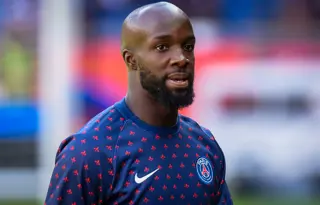Statement
FIFPRO Statement: Decision of European Court of Justice

- European Court of Justice ruling states central parts of FIFA’s player transfer rules are incompatible with European Union law
- The clauses in Article 17 are the foundation of the current transfer system and have impeded the career of numerous players
- The ruling is not only important for Lassana Diarra and FIFPRO will analyse what it means for active and retired players
After analysing the decision of the European Court of Justice (ECJ) today, it is clear the ECJ has ruled unequivocally that central parts of the FIFA Regulations on the Status and Transfer of Players are incompatible with European Union law. The ECJ has emphasised that these regulations must comply with EU rules on competition and freedom of movement principles.
In particular, the ECJ has stated that the calculation of compensation to be paid by a player who terminates a contract 'without just cause' – and the liability for the player’s new club to be jointly liable for such compensation – cannot be justified.
These clauses of article 17 of the FIFA regulations are the foundation of the current transfer system and have discouraged numerous players from terminating their contract unilaterally and pursuing new employment. The ECJ also made clear that the career of a player is short and this abusive system can lead to the premature end of a player's career. The current regulations, the court says, do not contribute to the protection of their rights as workers.
The court has perfectly grasped the hindrances and obstacles that professional footballers have encountered since 2001 when entering the employment market and has made specific reference to the damages that has resulted from the anti-competitive status quo. The court states that the current criteria applied are "sometimes imprecise or discretionary, sometimes lacking any objective link with the employment relationship in question and sometimes disproportionate".
Thanks to today’s judgement FIFA will be forced to amend this practice, and it must be clear that any such change can only be done through agreement with the social partners, including player unions and their members. This is the only way to ensure that the rules are based on criteria that are transparent, objective, non-discriminatory and proportionate.
We commend Lassana Diarra for pursuing this challenge which has been so demanding. FIFPRO is proud to have been able to support him. Lassana Diarra – like Jean-Marc Bosman before him – has ensured that thousands of players worldwide will profit from a new system which must guarantee respect of their employment rights. This ruling is not only important for Lassana Diarra but all players, both active and retired. FIFPRO will continue to analyse what the ruling effectively means for all those players.

As we have done many times before, FIFPRO reiterates its willingness to enter negotiations with FIFA and the other social partners in professional football to collectively agree on a new set of rules which is compliant with EU law and respects the rights of players.
Stephane Burchkalter, FIFPRO’s Interim Secretary General, said: "Today's decision brings two fundamental elements from which conclusions will have to be drawn in the days to come:
- All professional players who have been affected by these illegal rules – which have consistently been denounced by FIFPRO for many years – should be taken into account. We will have to consider collectively with all our members the means that players can pursue to seek compensation for the damage suffered during their careers.
- The current regulations defined unilaterally by FIFA have been unsustainable for a long time. It is essential that the professional football labour market is defined by social partners, including players, national unions and their global representative FIFPRO. This must be done in a collective, inclusive manner and through a system of negotiation of any of the rules that impact the working conditions and employment status of players. Sports authorities must open their eyes and stop operating in a monopolistic way."
David Terrier, President of FIFPRO Europe, said: "This is an important judgement, which – without a doubt – revolutionises football governance in Europe and more particularly the regulation of the labour market.
- The ECJ made a point of specifying, in point 99 of its judgment, that FIFA "has not been entrusted with any particular mission by the public authorities with regard to the protection of workers" and that it does not appear that the current regulations are "capable of continuing to protect professional footballers".
- In other words, the regulation of a labour market is either through national laws or collective agreements between social partners. As a reminder, Article 152 TFEU (Treaty on the Functioning of the European Union) allows legitimate social partners to negotiate and conclude, at European level, collective agreements which then become binding on the entire sector concerned.
- A sectoral social dialogue already exists, under the aegis of the European Commission, for professional football. Until now, this social dialogue was somewhat paralysed by the FIFA rules that the ECJ has just declared illegal. This path is the only one that allows the implementation of rules based on transparent, objective, non-discriminatory and proportionate criteria.
As of today, the social partners of professional football have a blank page to implement labour market regulation that ensures a fair and effective balance between the interests of players and the interests of clubs."
